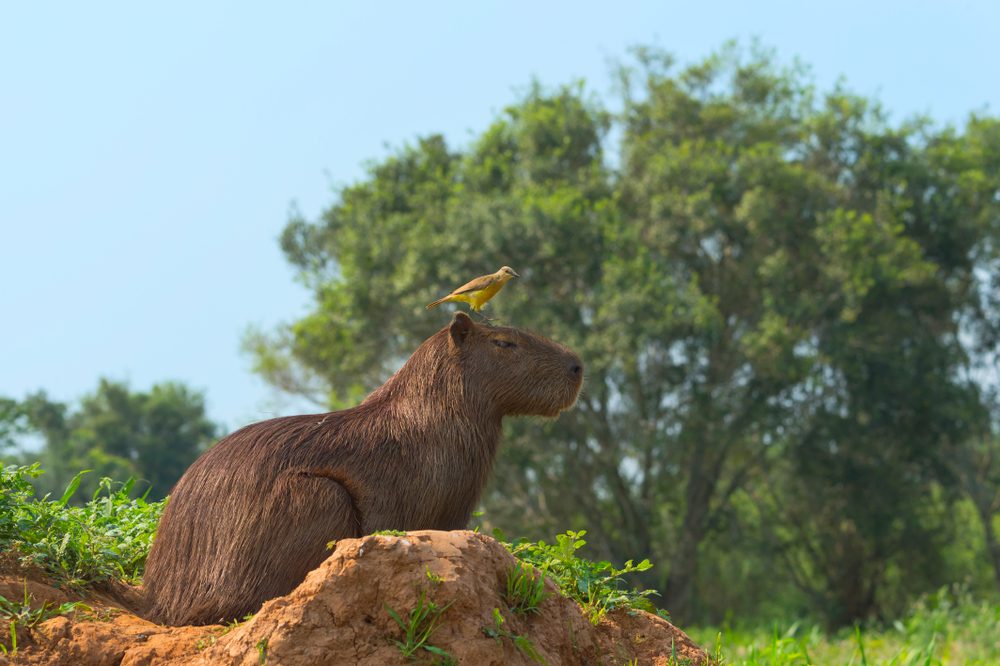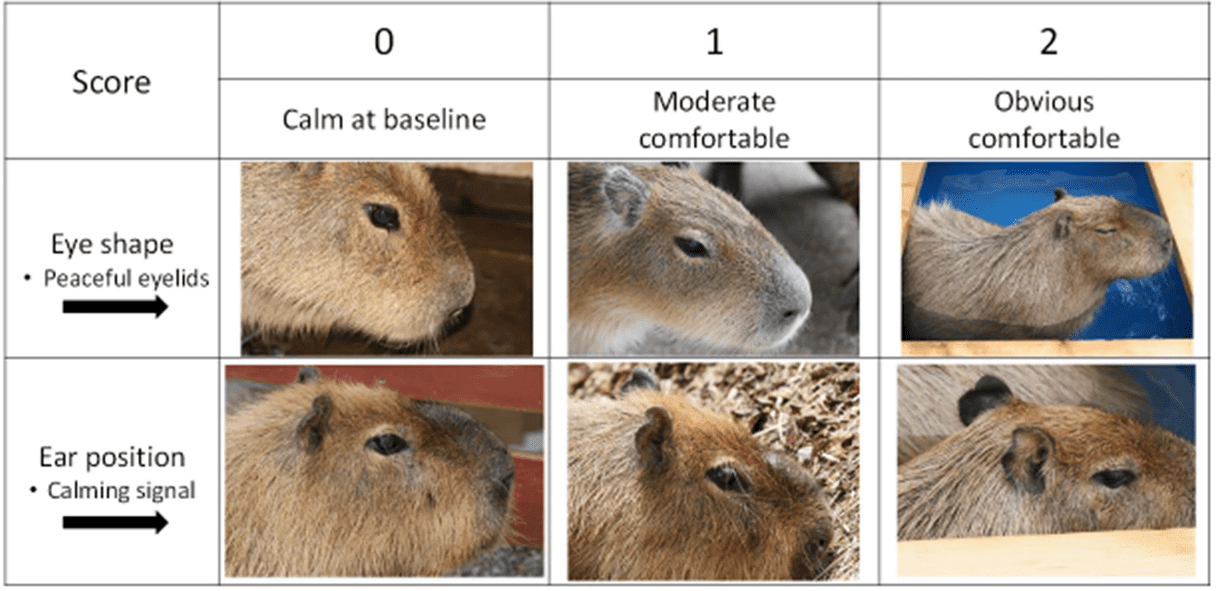As you will know if you’ve ever suffered from dry skin, you will try just about anything to find some relief. Well, dermatological dilemmas affect our animal friends too, and some of the solutions that we may turn to ourselves can also be beneficial for them. The Japanese tradition of the yuzu bath has been a surprising smash hit with one particular rodent resident of the country’s zoos: the capybara.
Capybaras: a brief history
The capybara (Hydrochoerus hydrochaeris) can certainly lay a claim to the title Rodent of Unusual Size, although thankfully they’re a lot more friendly than their movie counterparts. Weighing in at up to 79 kilograms (174 pounds), these Central and South American natives are closely related to guinea pigs. They are considered semi-aquatic, and can often be found near to the banks of lakes or rivers. Their webbed feet allow them to switch seamlessly between walking and swimming, and they can hide underwater for up to five minutes at a time to evade predators.

In the wild, it’s not uncommon to witness capybaras offering a perch to one of the bird species with whom they enjoy mutualistic relationships. As if these critters needed any more meme potential. Image credit: GTW/Shutterstock.com
Although they are hunted for meat and fur in some areas, wild capybara population numbers have remained stable. They are a common sight in zoos and parks around the world, but have become a particular attraction in Japan, which is where our story really begins.
The ritual of the yuzu bath
Japan is renowned for its hot springs, or onsen – natural, mineral-rich baths that are associated with relaxation and wellbeing. The custom of adding yuzu, a type of citrus fruit, to a hot bath has long been observed around the time of the winter solstice. Whole or sliced fruit may be added to the water, and there is also the option of bath salts for those without access to fresh yuzu. The symbolism of adding this winter-ripening fruit, which withstands cold temperatures and harsh weather, is thought to bring the bather good fortune for the year ahead.
The aroma of yuzu, which has been described as a cross between lemon, grapefruit, and mandarin, has been suggested to be beneficial in reducing stress. Like other citrus fruits, yuzu is an abundant source of vitamin C and citric acid, common ingredients in skincare products – it’s understandable, then, why yuzu bathing is traditionally also considered beneficial for the skin.
Capybaras enjoy hot baths too
Capybaras are the highlight of many a zoo visit in Japan, but perhaps nowhere is more synonymous with them as the Izu Shaboten Koen in Itō. Back in the 1980s, a zookeeper cleaning out the capybaras’ pen noticed how the animals gathered around a puddle of warm water, trying to bathe in it.
Warm-water-dwelling rodents in a country with so many hot spring resorts: surely, a match made in heaven? And so, the daily capybara bath was born, with the seasonal addition of some floating yuzu fruit in the wintertime.
Noticing how much these calm Caviidae seem to enjoy their ritual soak, a pair of researchers from Yamaguchi University sought to investigate whether the baths might benefit the capybaras’ skin as well as their mood.
It was observed that capybaras living in captivity developed dry, rough skin during the colder months. The study, published in Scientific Reports in 2021, found that these skin complaints improved after hot spring bathing, returning the condition of the skin back to how it was in the summer. For their part, the capybaras themselves were apparently delighted by this, as an assessment of their comfort found indicators that bathing improved their wellbeing.

So, there you have it. Capybaras enjoy a yuzu bath for much the same reasons that humans have partaken in the tradition for centuries – it seems to help their skin, and it definitely chills them out. The sense of calm they exude is infectious and explains why videos of submerged capybaras are so wildly popular online, and why these animals continue to be the star attraction at so many zoos.
As one visitor to Izu Shaboten Koen told Reuters, “They look so relaxed … I would really like to join them in their bath.”
Us too, friend. Us too.
Source Link: Why Do Capybaras Take Yuzu Baths?